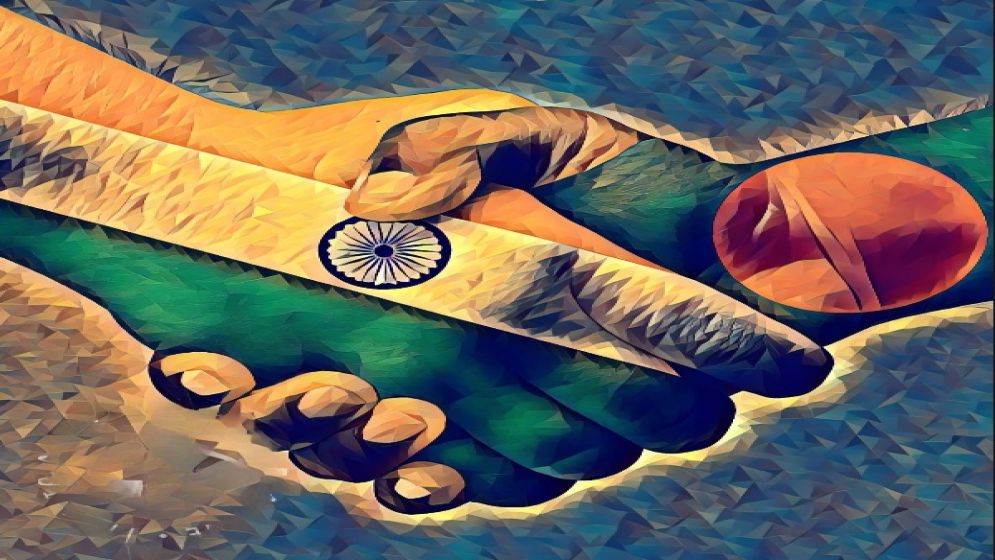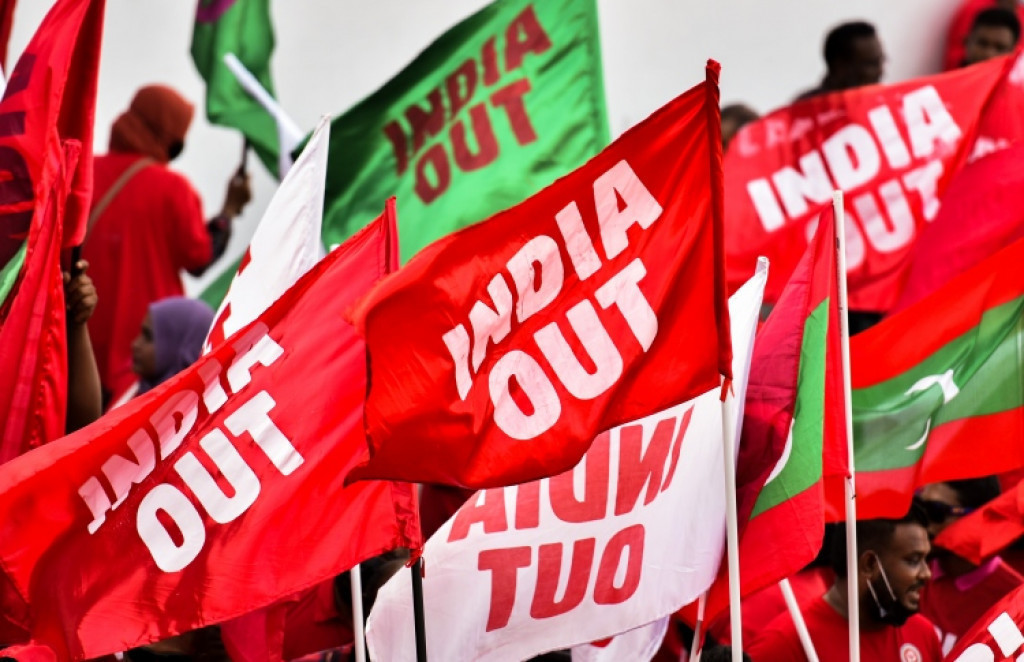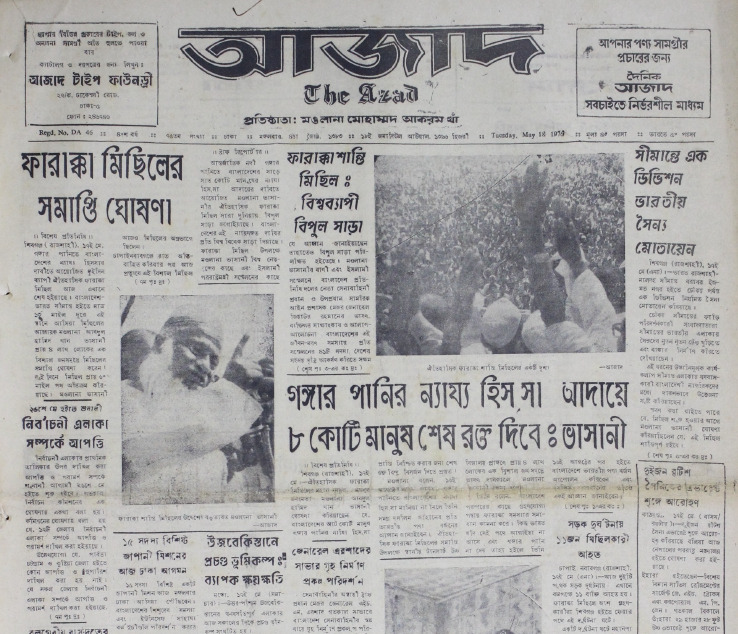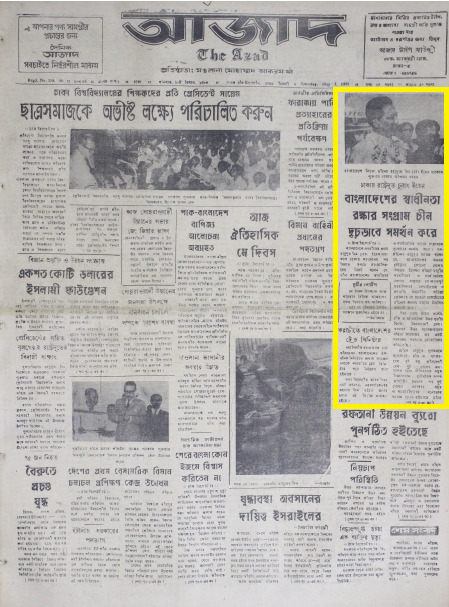Resistance through the ages: Bangladesh's "India Out" campaign in historical context

Narendra Modi is going to take oath today as India's Prime Minister for his third consecutive term--an unprecedented achievement in the nation's recent history, and his ceremony is being attended by someone who has this experience even better–Prime Minister Sheikh Hasina of Bangladesh who just took her oath for the fourth consecutive term at the beginning of the year.
Hasina became the first "distinguished" guest of Modi's oath-taking ceremony on Saturday when she arrived in Delhi a day earlier. The External Affairs ministry of New Delhi extended a warm welcome to her, stating that the visit of one of their "most valued partners" would further strengthen the close and deep-rooted bonds of friendship between Bangladesh and India.
While Modi secured his return to power through an arduous and extensive campaign, traversing from the High Himalayas to dense jungles in pursuit of votes, amidst a closely contested battle with a formidable opposition alliance led by the Indian National Congress (INC), Hasina's return to power occurred in what is now cynically labeled a "dummy election," devoid of any significant opposition.
There is a prevailing belief, supported by valid reasoning, that Hasina's return to power was facilitated by Modi's backing, with New Delhi assisting in alleviating the intense pressure from the Western bloc, led by the United States, for Dhaka to conduct a free, fair, and inclusive election.
Now, in Bangladesh, mounting dissatisfaction over New Delhi's persistent interference to maintain their favored candidate in Dhaka's leadership has manifested into a widespread "India out" movement. This movement has witnessed people boycotting Indian products as a means to exert economic pressure, given that Bangladesh's significant neighbor enjoys a considerable $12 billion export market in the country.

Anti-India sentiment in Bangladesh is nothing new. Despite India playing a crucial role in Bangladesh's liberation from Pakistan, its perceived interference in Bangladesh's internal affairs, particularly during the reign of the Awami League, a party with historical ties to New Delhi, is viewed unfavorably by the general populace here.
Examining the often overlooked history of subaltern resistance against regional dominance in post-liberation Bangladesh, it becomes clear that anti-India sentiment has been a persistent undercurrent, as noted by Michel-Rolph Trouillot's concept of the "silenced past".
Early anti-India resistance
Following a devastating war of liberation against Pakistan, Bangladesh emerged as a sovereign nation on December 16,1971. While India's strategic support had been instrumental in achieving this independence, it also fostered an expectation of continued amity between the two nations. However, the post-liberation period quickly saw a souring of relations.
Indian ruling classes' perceived hegemonic tendencies, ongoing exploitation, and alleged aspirations to relegate Bangladesh to a subservient status provoked widespread resentment among the Bangladeshi populace and its pro-people political leaders.
One of the most vocal critics of this perceived Indian expansionism was Maulana Abdul Hamid Khan Bhashani, a prominent figure who fiercely opposed Indira Gandhi's government and its alleged influence over the Bangladeshi administration.
Bhashani's weekly magazine, The Haq Katha (banned in September 1972), in all essence, serves as an early precursor to the contemporary "India Out" campaign. The magazine's content provides a historical context for the anti-India sentiment that has periodically resurfaced in Bangladesh, highlighting the complex and often contentious relationship between the two neighbors.
The Haq Katha consistently criticized perceived Indian interference in Bangladesh's affairs. On June 2, 1972, it published an article alleging an "Indo-Russian Conspiracy to Cripple Bangladesh Defence," satirically referring to India's planning minister as Bangladesh's "unofficial prime minister." Another article on July 21 claimed that the Bangladeshi government was fulfilling "home tasks" to appease India, including suppressing dissent against Indian influence.
Maulana Bhashani, in a September 19, 1972 speech, accused India of causing a famine in Bangladesh, stating that India had "looted more in the last 7-8 months than Pakistan did in 25 years." He repeatedly challenged the government to disprove the link between India's actions and the country's hardships.
The slogan "Why Indian oppressors after Pakistanis?" became a rallying cry during these protests, highlighting the public's growing discontent with India's perceived role in Bangladesh.
Farakka Long-march and Bhashani’s threat
In a further demonstration of resistance against perceived Indian dominance, Maulana Bhashani led a massive Long March towards the Farakka Barrage on May 16-17, 1976. The march, which attracted an estimated 400,000 participants, aimed to demand a fair distribution of the Ganges River's water.
In his concluding speech to the assembled crowd, Bhashani issued a stern warning: if Bangladesh did not receive its rightful share of water, he would call for a nationwide and international boycott of Indian products. This bold declaration, reported in The Azad on May 18, 1976, underscores the intensity of public sentiment against Indian policies at the time.

Despite India's warnings against the Long March, Bhashani remained defiant, declaring, "We don't fear the threat from any power...It is a resistance of small power against the big one." While the protest aimed to secure Bangladesh's water rights, it also sought to raise awareness among both the Indian public and the international community about the issue.
The Long March garnered significant international attention, with coverage from major media outlets like the BBC, Voice of America, and Radio Australia. China, the first country to establish an embassy in Bangladesh, expressed strong support for the country's efforts to protect its sovereignty. Bangladeshi citizens and students even staged peaceful protests in front of the Indian embassy in Paris.
The issue also resonated at the 7th Islamic Conference of Foreign Ministers held in Turkey in May 1976, where the Farakka issue was raised as a matter of deep concern. These developments demonstrate the success of Bhashani's efforts in bringing the Farakka issue to global attention and garnering international support for Bangladesh's cause.

The Ontological Reality
The ongoing anti-India sentiment in Bangladesh, from historical resistance movements to the present "India Out" campaign, reveals a consistent failure of Indian leaders to connect with the Bangladeshi people.
The aspiration to be a regional power is understandable within the current global political landscape, but when this ambition adversely affects the lives of ordinary people and causes undue hardship, resistance becomes inevitable. This is the ontological reality of Bangladesh: a nation determined to protect its hard-won independence and sovereignty.
India's perceived role as an imperial or neo-colonial power complicates its understanding of the resistance it faces in Bangladesh. Without recognizing and acknowledging the distinct worldview and aspirations of the Bangladeshi people, India cannot hope to comprehend the roots of this resistance. To grasp the essence of resistance, one must delve into the unique context it emerges from.
Throughout history, the people of Bangladesh have consistently voiced their yearnings for liberty, freedom, and democracy, firmly rejecting any attempts to subjugate them to neo-colonial or subservient status. Despite the consistent articulation of this message, it appears to fall on deaf ears within the corridors of power in India.
—
Zunayed Ehsan is a PhD Researcher of Anthropology department of the University of Wisconsin-Madison, USA

